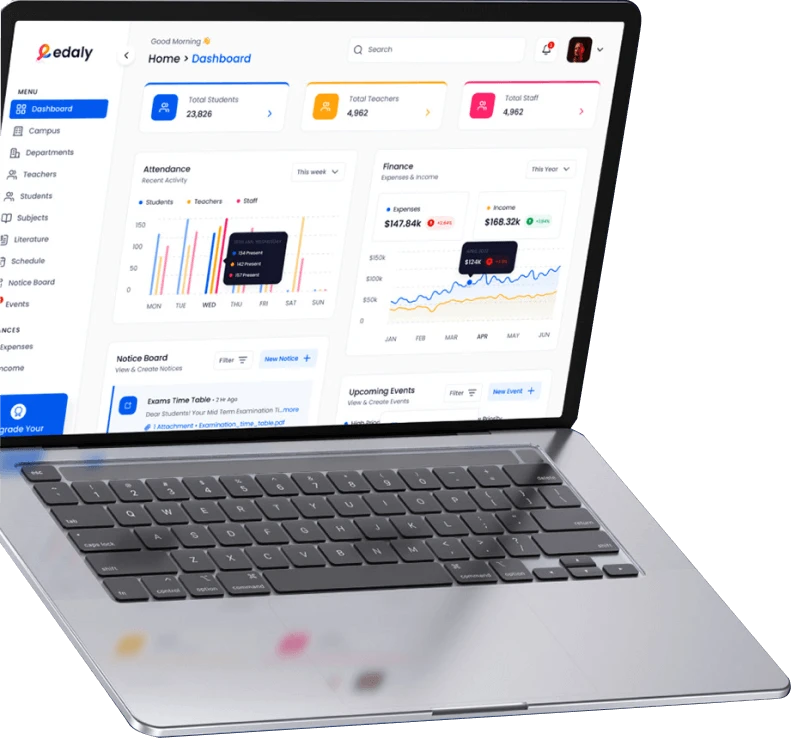
Want to revolutionize the study process? Open the door of educational opportunities with the help of our skilled EdTech developers. Whether you are an educational institution, a dynamic startup or simply an individual educator, we have a team of highly competent developers ready to make your dream of education a reality.
Imagine! Individual applications that can support teachers and learners in the educational process. Our developers are experts in creating user-friendly applications, meaningful learning resources and interfaces for educational applications. Are you ready for the next chapter of the education industry, which is growing exponentially? Explore developer bios and hire the best EdTech developers who is engaged in developing learning tools and seamless educational apps. Are you prepared for the next chapter in EdTech industry? Dive into our developer profiles and Hire top talent.
Talk to our team for custom pricing
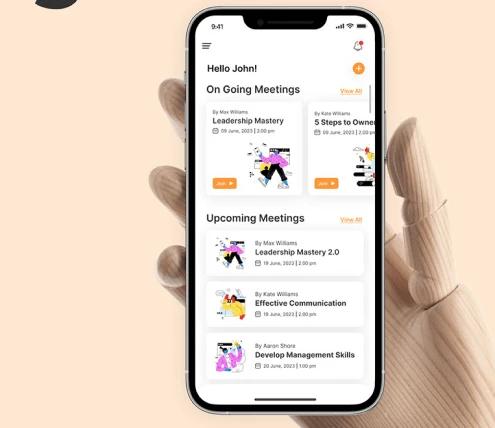
EdTech can be described as a diverse and rapidly growing field that focuses on the use of technology in learning and education. It ranges from technologies used in education and learning processes to external solutions designed to promote education, effective learning and improve teacher and learner performance.
In today's digital age, EdTech plays a crucial role in classrooms, online learning environments, and professional development settings. It includes learning management systems (LMS), online courses, interactive apps, virtual reality simulations, and much more, making education more accessible, fun and effective than ever before.
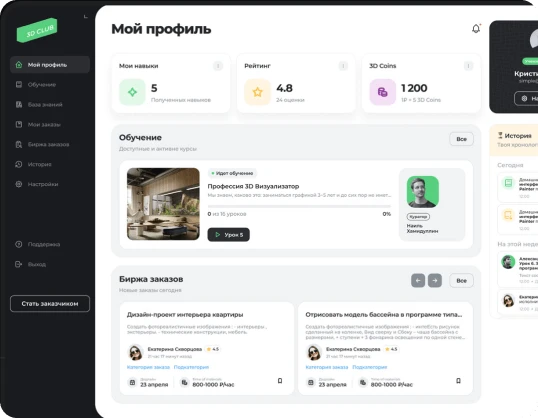



Talk to our team for custom pricing
The global EdTech market is expected to reach $232.9 billion by 2027, growing at a CAGR of 13.2% from 2022 to 2027.
The number of edtech users worldwide reached 472.2 million, a significant increase from previous years.
The use of online courses and e-learning platforms was increased by 74% between 2020 and 2021 due to the switch to distance learning during the COVID-19 pandemic.
Education investments in startups reached 12.6 billion dollars in 2025, underlining investors' strong confidence in the industry's growth potential.
Adaptive learning technology, which personalizes educational content based on individual student performance, is expected to grow at a compound annual growth rate (CAGR) of 29.2% from 2021 to 2028.
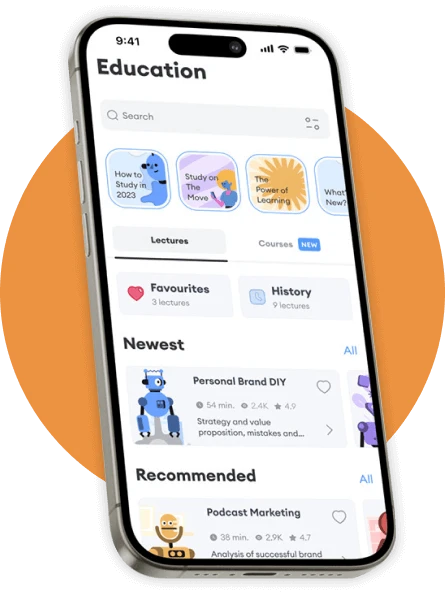
Talk to our team for custom pricing
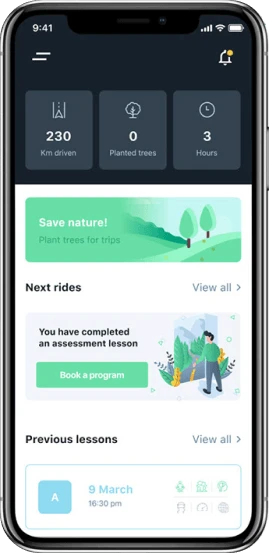
As we add new features to our platform to make it an educational tool, such as live teaching, interactive whiteboard, cheating detection, we run into some issues integrating these features. These features need to be integrated in such a way that they do not affect the user experience and at the same time do not slow down the system. For everyday content consumers, these are additions for better learning experience, while any problems arise such as technical incompatibilities or disparities, people will get easily frustrated. Also, the development, enhancement, training, testing, and deployment of these features are labour-intensive and demand careful planning and quality assurance.
Such aspects as the introduction of educatinal gamification elements to increase user engagement and the effectiveness of learning processes will be part of our future plans. But in today’s world, we are struggling to find the middle ground between education and entertainment. It is a challenge to develop gamification features that also engage different types of learners and/or age groups. These activities include developing engaging narratives, selecting incentives and monitoring user activity. An important task is to avoid the components of the chosen gamification approach, such as points, awards or levels, etc., completely dominating the main educational objectives, which can only be achieved through thorough planning and continuous improvement of the chosen approach.
Monitoring user activity with the aim of improving learning activities and outcomes is not easy. Currently, it is high time for us to collect useful statistics about the behavior of the users on our site, what sections are interesting to them, and whether they face any issues. Creating a strong tracking mechanism is possible but the privacy of the users has to be put into consideration as well.
During the online exam, the accreditation of association must be kept high to prevent candidates from cheating, and this can be done by using a camera to capture your attention and your touch on the keyboard. However, in order to achieve this, more sophisticated algorithms and, more importantly, more privacy-friendly methods are needed to make this possible without violating users’ privacy. This means that the technology should efficiently detect suspicious behavior while avoiding violating users’ privacy and data protection rights.
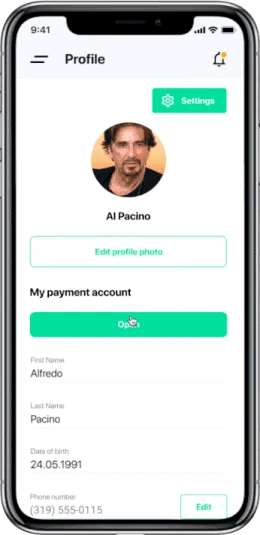
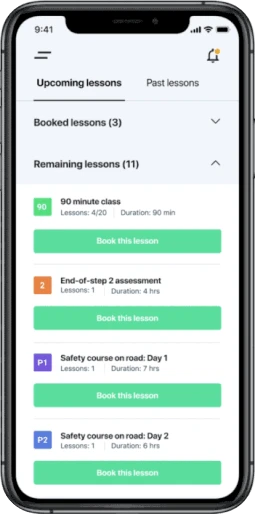
We face the difficulty of creating an environment that encourages global users to engage, share knowledge and collaborate effectively. Encouraging users to initiate and participate in discussions, form study groups and attend virtual events poses challenges in terms of cultural differences, language barriers and different levels of technical knowledge. In addition, maintaining a respectful and inclusive community atmosphere when moderating interactions is crucial, but also demanding.
Talk to our team for custom pricing
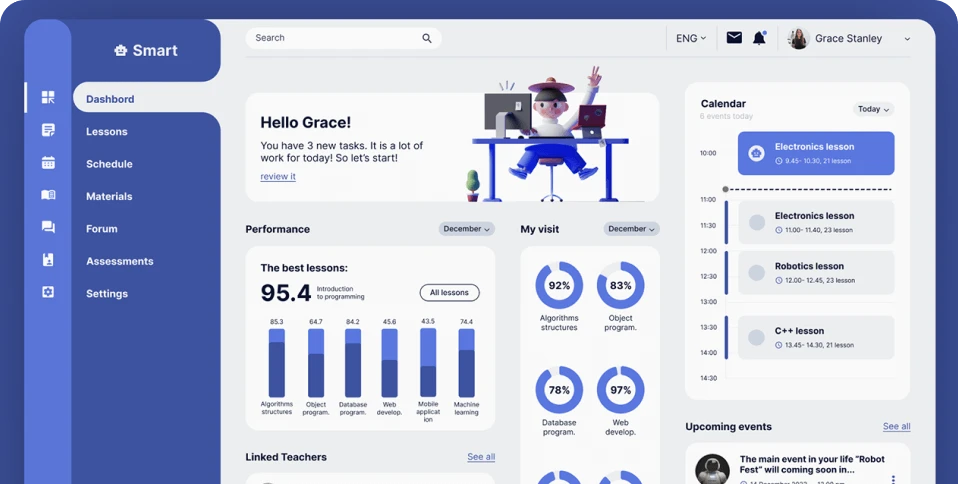
Interactive Learning ModulesTeach your students with the help of word games, videos and simulations to make their education more fun and exciting.
Personalized Learning PathsDevelop programs according to learning needs and pace and ensure that each student’s learning process is different.
Peer CollaborationDevelop discussion forums where students can learn from each other in collaboration with group work.
Progress TrackingKeep an ongoing log of student performance in real time that includes progress and achievement of specific goals within the course.
Mobile AccessibilityBy using a mobile app to access the learning material, it is possible to learn anytime, anywhere.
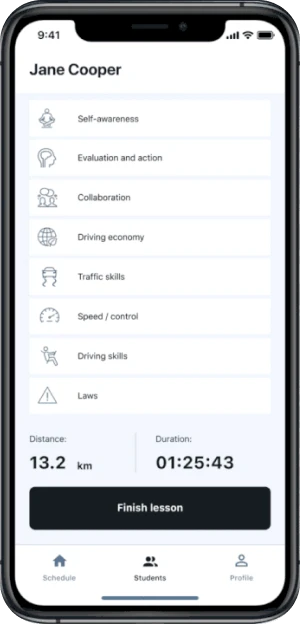
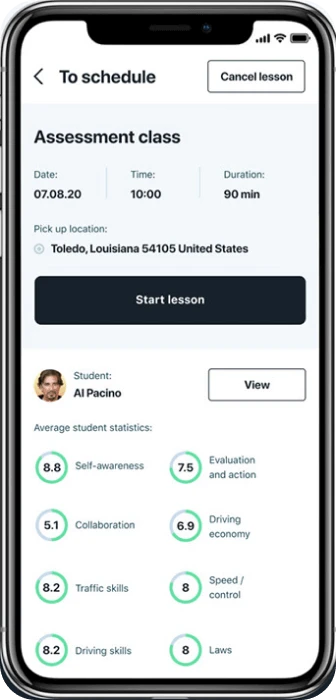
GamificationIntroduce game-like elements into the learning process to encourage a new, high level of learner interest.
Live Webinars and Q&A Sessions Enable face-to-face contact with speakers through live broadcasts and Q&A sessions.
Whiteboard CollaborationAllow the teacher or any student in the virtual classroom to write on a whiteboard while the others see it, enhancing virtual learning.
Language SupportMake knowledge available to different nations by translating it into different languages and offering translation services.
Offline AccessDownload the course material to get easy access to the learning materials in areas with low network connectivity so you can learn in any or all conditions.
Content ManagementAllow users, i.e. teachers, to easily create, edit and update content to enable efficient teaching in their courses.
User AnalyticsProvide teachers with detailed analysis of user performance and help them customize lessons to meet individual needs.
Bulk EnrollmentProvide efficient student enrollment and management tools suitable for expanding the learning community.
Assessment ToolsCustomize tests, assignments and assessment criteria, with instant and/or automatic feedback on student performance.
Integration SupportThe system should be compatible with many of the popular learning management systems and with any third-party educational applications that can be integrated.
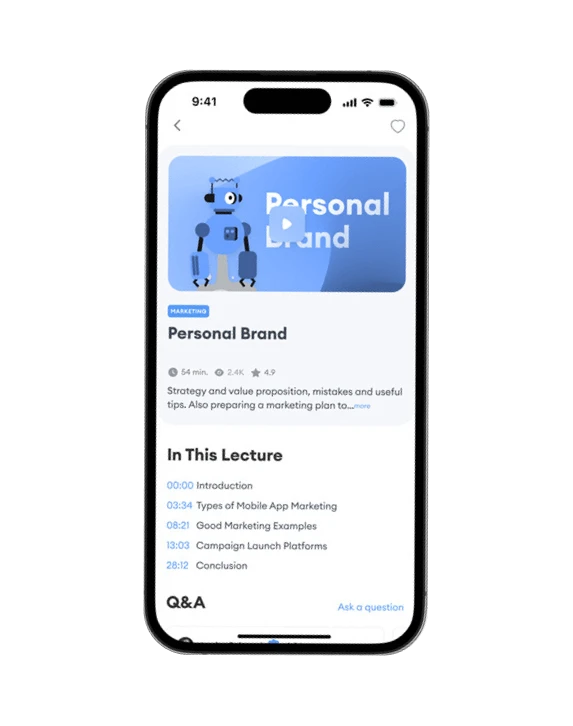
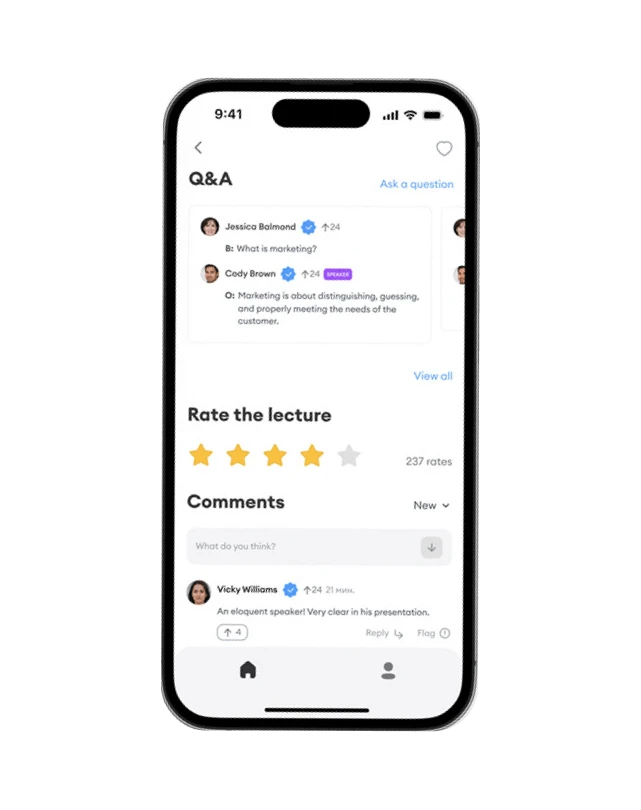
Content Version ControlConvenient synchronization of numerous changes to teaching materials to avoid inconsistencies and errors.
Communication ToolsTo transmit messages or information, it supports announcements, notifications and messaging, especially for teachers to pass messages to students.
Roles and PermissionsControl the accounts of teachers, content creators and support staff, organize access and give or deny responsibilities.
Parental MonitoringProvide parents with access to monitor their children's educational progress and engagement transparently.
Data Backup and RecoveryEmploy reliable techniques of backing up data and restoration in order to protect crucial educational documents and records from destruction.

From security to code quality we have got your all covered
GraffersID offer a ready to join pool of in-house developers
who you can trust with your code and product.
Mandatory NDA Resources
Restricted Data Sharing
Manage As you Like
Complementary Tracking Tools
Direct Control of Resources
Connect with GraffersID experts to hire remote developer on contractual basis.